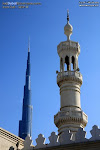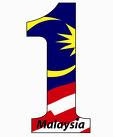
America's new hope
But in 2009 Barack Obama will have to learn how to say no both at home and abroad, argues John Micklethwait
-
So, Mr President, what exactly are you going to do? As Barack Obama stares down at the cheering crowds at his inauguration on January 20th 2009, America’s first black president may well remember the great buzzword of his campaign—and smile ruefully. His mantra of “Change” propelled him all the way to the White House in some style. Mr Obama did not just win the electoral college handsomely; he has the full backing of a Democratic Congress and the overwhelming support, if national polls are to be believed, of most of the rest of the world. George Bush never had such a broad political mandate.
-
Yet change will constrain what President Obama can actually do in 2009. Most obviously there is the cathartic change over the past year in the economy: whereas Mr Bush inherited a healthy budget surplus in 2001, in 2009 America’s budget deficit is projected to be as high as $1 trillion. But there is also foreign affairs. Back in 2000 the United States, the undisputed hegemon, was mainly at peace with the world. In 2009 Mr Obama will have troops under fire in Iraq and Afghanistan, and power is shifting away from America towards the faster-growing economies of the emerging world.
-
How Mr Obama deals with these very different changes will determine the success of his presidency. A man who has often been accused of being all things to all people will have to start making choices. Many of these choices may disappoint his own party as well as some of his most fervent supporters around the globe.
-
The immediate focus in 2009 will understandably be on the economy. Mr Obama promised a lot of things to a lot of people. Even if there were more money available, he would have had to concentrate on just a few core things, such as his middle-class tax cut and his health-care plan; with fewer funds, that will be essential. He may even be able to turn the need to economise to his advantage. On health care, some of the mooted reforms in Congress look more efficient than his own one (and still deliver the universal coverage America ought to have). Meanwhile, the empty government coffers provide a perfect excuse to escape from his more pork-laden commitments.
-
Nevertheless, frustrations will mount, especially in his own party. With an economy in recession there will be protectionist growling from Congress which needs to be firmly resisted. There will also be reams of regulation. Many of the main Democratic constituencies have waited a long time to get their man in the White House: the unions will demand new labour rules; lawyers will want liability laws; greens will wage new environmental campaigns. All of these could slow down any economic recovery.
-
Young ambitious presidencies can get derailed by small causes early on: think of what the “gays in the military” fuss did to Bill Clinton in 1993. A particular worry about Mr Obama is that in his brief political career he has never obviously crossed his party on any significant issue. He will need to start saying no to Democrats soon in 2009 if he is not to betray the many independent voters who believed his campaign talk about representing the whole country.
-
"Around the world the young new president has become a symbol of what people think America should be"
-
If expectations are too high for Mr Obama in domestic policy, they are off the scale when it comes to the world abroad. Once again, the Democratic base will be a problem: it expects him to extract America from Iraq rapidly and smoothly. That was what Mr Obama once promised; but he now seems to realise that a rapid retreat from Iraq would be disastrous both for that country and for America’s reputation in the region. Meanwhile, he will also need to re-sell the Afghanistan campaign to a weary electorate: the West’s chances of prevailing depend on having more troops there, not fewer.
-
That brings in the issue of America’s allies. Around the world the young new president has become a symbol of what people think America should be. Merely because he is not the loathed Mr Bush, he may be able to deliver some things. The rapid closure of Guantánamo Bay would be a good start. But other things the world hopes for, such as a global-warming pact, will take a long time. Peace in the Middle East will not break out just because the new president’s middle name is Hussein: hard compromises need to be made. Mr Obama needs to spell out what he will do; and he also needs to demand more from America’s allies. That so few of them help in Afghanistan, for instance, is a disgrace, and he should say it loudly.
-
Just as much as at home, the new president will be tested by events abroad. There are plenty of troublemakers like Iran who will want to test the new president’s mettle. Yet, as he scrambles to deal with these immediate challenges, Mr Obama should also look to the long term—and to one thing in particular.
-
When historians look back on his presidency, they may well judge him most on whether he managed to bring the emerging powers into the world order and unite them behind Western values. By the time Mr Obama leaves office, which, assuming he serves two terms, will be 2017, powers like China, India and Brazil will surely have taken larger roles in the world economy. At the moment, none of them is in the G8 club, and only China has a spot on the UN Security Council. If America cannot find a way to bring China and India into the existing global power structure, they will start drifting away to form their own clubs.
-
It is not just institutional. China especially is nervous about Western values. The financial crisis coupled with the shredding of America’s reputation over the past eight years has given weight to those people in the regime who argue that Western capitalism and democracy are flawed, old models. The new president will have to re-sell what America stands for. That will be a long process; but, even allowing for all his other priorities, President Obama needs to start work on it in 2009.






















